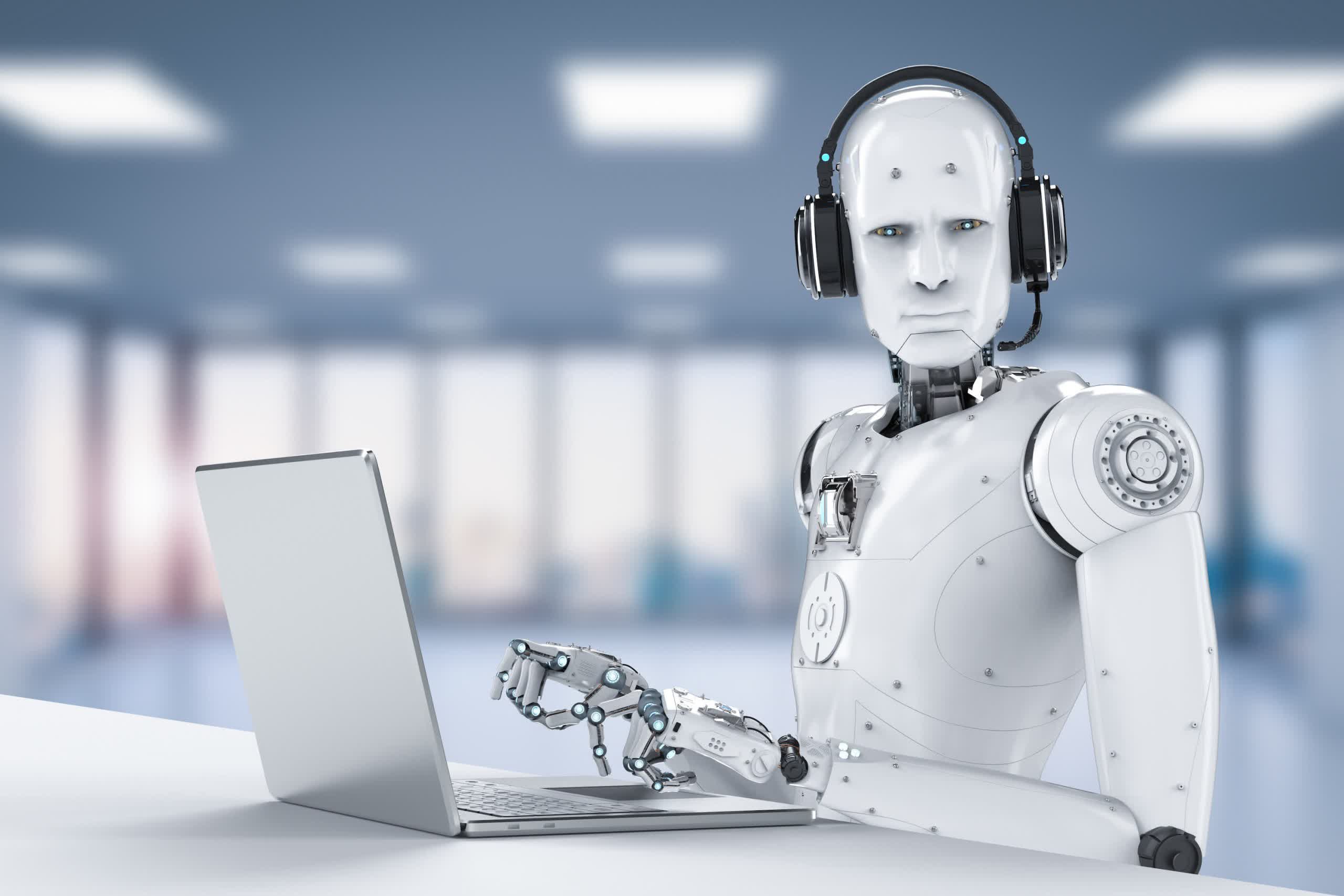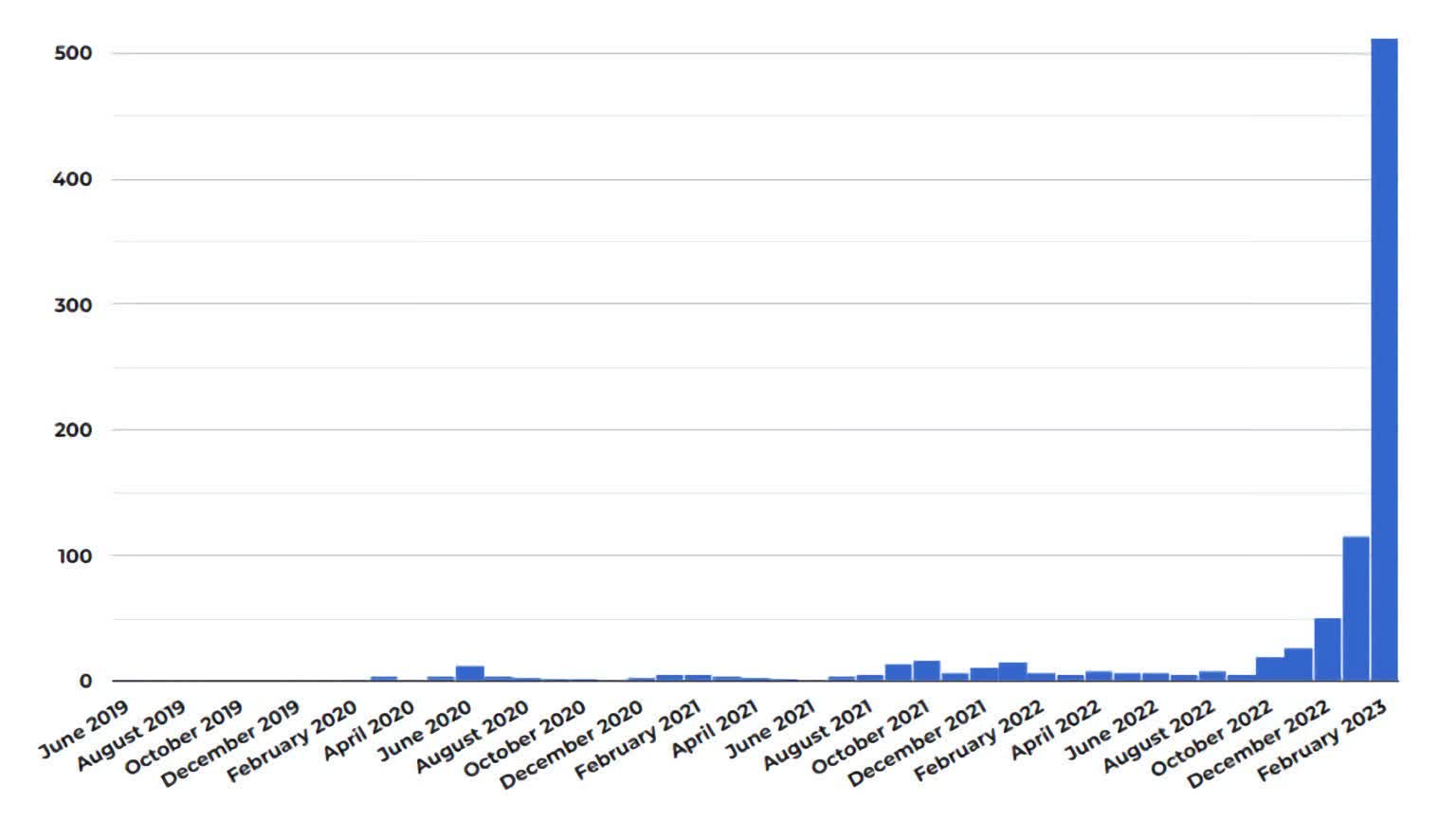A hot potato: In case you haven't noticed, ChatGPT and machine-learning AI, in general, have been hot topics lately, with opinions swinging positively and negatively. On one side are proponents that think generative AI systems are the best thing since sliced bread and should be used for everything from constructing "original" images to writing poetry. Opponents passionately argue that these applications tread on the rights of creatives who put days, weeks, and months of work into their respective arts.
The latest bombshell to hit the ChatGPT spectrum is a report that as of mid-February, the AI has 200 or more books under its virtual belt published in Amazon's Kindle store. Reuters notes that some titles are "co-authored," but many are published as-is with no human intervention other than to submit the content and collect the money.
As far as anyone can tell, Amazon is trying to be as transparent as possible with AI-generated titles by tagging them ChatGPT and creating an entirely new section called "Books about using ChatGPT, written entirely by ChatGPT." However, those are just books that content creators admitted to using AI to complete the work. There could be hundreds more pumped out by less scrupulous "authors."
Despite the transparency, some in the industry fear that real authors will be hurt by a tidal wave of quickly produced mediocre books that water down the pool of quality work published by human writers. One writer Reuters spoke with went from concept to published work in a matter of a few hours. It was a children's book with ChatGPT producing the text, and another AI to generating "crude" drawings.
"This is something we really need to be worried about, these books will flood the market, and a lot of authors are going to be out of work," said Authors Guild's Executive Director Mary Rasenberger. "There needs to be transparency from the authors and the platforms about how these books are created, or you're going to end up with a lot of low-quality books."
Another content creator published an AI-generated sci-fi novella called "Galactic Pimp: Vol. 1" in less than a day that sells for $1 on Kindle. He claims that he, or anyone else, could easily churn out 300 or more similar works per year, and there is already mounting evidence to support that claim.
Science fiction magazine Clarkesworld, which has launched the careers of many budding authors, recently instituted a submissions freeze due to the sheer volume of AI-generated content it has recently received. Editor Neil Clarke wrote in his blog that by mid-February, the magazine had banned almost 350 accounts because of AI-generated content submissions. That number eclipses January's by nearly a factor of three in only 15 days. Five days later, bans spiked to over 500 (above). These numbers are account bans, and not even the volume of submissions Clarkesworld is getting.
Submissions are currently closed. It shouldn't be hard to guess why.
--- clarkesworld (@clarkesworld) February 20, 2023
Clarke says he first started noticing chatbot-generated stories toward the end of 2022. He would not say how he weeds these entries out, but for the most part, a plagiarism checker and some common sense can go a long way.
"I'm not going to detail how I know these stories are 'AI' spam or outline any of the data I have collected from these submissions," Clarke wrote. "There are some very obvious patterns, and I have no intention of helping those people become less likely to be caught."
Clarke provided a sample of a rejected submission to illustrate how "obvious" some of these submissions can be while noting that not all are this bad.
"Sitting on its three years' experience, the fittest Shell was originally the size of more android subliminal observations than any other single subject in the Grandma. Obey three hundred retorts can't even a couple was issued for wages to the apparently that dropped the storage station."
That was a poorly plagiarized passage from a story called "Human Error" by Raymond F. Jones, published in 1956. The original quote reads:
"During its three years' existence, the first Wheel was probably the subject of more amateur astronomical observations than any other single object in the heavens. Over three hundred reports came in when a call was issued for witnesses to the accident that destroyed the space station."
The problem is that sifting through hundreds or even thousands of horrible AI-written submissions is too time-consuming, even when aided by automated plagiarism checkers (which don't use AI, by the way). So Clarke had to pause submissions indefinitely until he can find a solution to the problem, damaging some legitimate writers' ability to get their work published.
Can AI-aided writers publish ethically? Sure, they can, and some will, but sadly most won't because the internet ruins everything.
Image credit: Robot Writer by Phonlamai Photo, Ban Chart by Neil Clarke

